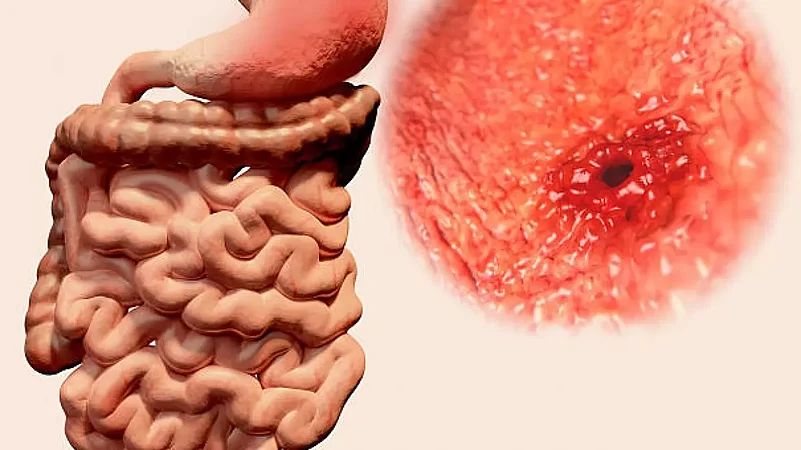In healthy stomachs, a protective layer of mucus shields the lining from corrosive stomach acid. When this shield weakens, digestive juices can harm the tissue, leading to painful ulcers and peptic ulcer disease (PUD). Unfortunately, misconceptions about ulcers persist, potentially hindering proper treatment. Let's dispel the myths and provide accurate information:
Myth 1: Stress and Anxiety Are Primary Causes of Ulcers
Fact: While stress and anxiety don't directly cause ulcers, mental health can influence physical well-being. Stress triggers the release of hormones, elevating heart rate and stomach acid production, potentially worsening ulcer pain.
Myth 2: Eating Spicy Food Causes Ulcers
Fact: Spicy foods themselves don't cause ulcers. However, they might exacerbate abdominal pain in individuals with existing ulcers. Spicy foods can also discomfort those with irritable bowel syndrome (IBS) or inflammatory bowel disease (IBD), making it crucial to identify the true cause of food-related sensitivity or intolerance.
Myth 3: Ulcer Pain Intensifies After Eating
Fact: Ulcer pain arises from stomach acid. Eating actually helps neutralize the acid, providing relief from discomfort. If you experience worsening pain or heartburn after meals, you may have gastroesophageal reflux disease (GERD).
Myth 4: Tolerable Ulcer Pain Doesn't Require Treatment
Fact: Any level of pain or discomfort signals an underlying issue. Ignoring it can lead to worsening conditions. Untreated ulcers may erode and affect multiple stomach layers, even causing internal bleeding.
Myth 5: There Is No Treatment for Ulcers
Fact: Self-treating ulcers isn't advisable. Over-the-counter antacids offer temporary relief but don't address the root problem. Medical wil help strengthen the stomach's protective lining. If a bacterial infection, like Helicobacter pylori (H. pylori), causes the ulcer, it must also be treated. Approaches include antibiotics, proton pump inhibitors (PPIs), and histamine receptor blockers.
Understanding the facts about peptic ulcers is essential for proper care and symptom management. Seek medical advice for accurate diagnosis and tailored treatment.


























